The number of FBI background checks associated with gun sales fell again last month, according to a new industry report.
Gun sales-related background checks declined 1.6 percent year-over-year in May. That’s the topline conclusion of the National Shooting Sports Foundation’s (NSSF) latest analysis. The NSSF found that the number of National Instant Criminal Background Check System (NICS) checks fell from 1.089 million in May 2024 to 1.071 million in May 2025, making this May the worst-performing May for the gun industry since 2019.
The decline comes as the gun market has been in an overall downward trend in the gun market throughout 2025, as sales continue to decline to pre-pandemic levels. The market saw year-over-year declines in checks during February, March, and April. February was the second-worst-performing February in the last 13 years, with sales declining by nine percent. 2025’s first quarter was the worst of the past five years as checks fell near pre-pandemic levels.
The low numbers come in the wake of Donald Trump’s election, which has likely reduced industry demand by tamping down concerns about new gun restrictions. They may also reflect a continuing shift in general consumer sentiment, as recent price increases from the president’s tariffs have affected consumer spending across the economy.
According to a consumer pulse report from the accounting firm KPMG, 79% of U.S. consumers expect tariffs to increase prices in the months ahead. 50% said they plan to reduce their purchases as a result.
Gun stocks had mixed performance over the last month. Smith & Wesson (SWBI) stock was up about five percent compared to May. However, Outdoor Holding Company (POWW), which owns Ammo Inc. and GunBroker.com, saw its stock fall 30 percent after reporting a drop of $6.82 million in revenues for Q3 2024 compared to the previous year.
Stocks did not react significantly to Monday’s news that the Supreme Court decided not to hear challenges to an AR-15 ban and magazine ban.
The “One Big Beautiful Bill Act,” which passed the House last week, may boost sales for some in the gun industry if the current language is able to become law. The bill includes provisions to lower the tax on silencers, which suppress the sound of gun shots, from $200 to $0 and remove them from the National Firearms Act’s (NFA) intense restrictions.
The provision to remove silencers from the NFA altogether may not make it through the reconciliation process in the Senate because of the strict rules that govern what qualifies as a budget provision. House Republicans and gun-rights groups had a fierce disagreement over whether delisting would survive the reconciliation process, though they were in greater agreement that the tax cut would make it through. If Congress passes either of these provisions, it will likely increase the demand for silencer purchases by making them more affordable and easier to obtain. Trump has urged the Senate to get the bill passed by July 4th.
Whatever happens with the budget bill, NSSF argued May’s numbers, while down slightly, still represented significant demand for guns from American consumers.
“Background checks for retail sale of a firearm continue to remain over 1 million each month, showing that the right to keep and bear arms is of critical importance to Americans across this country,” Mark Oliva, an NSSF spokesman, said in a statement. “Despite economic uncertainty, these law-abiding citizens are investing in their personal safety and security – even in states where elected officials are pulling out all stops to limit the ability to legally purchase a firearm.”
There is no exact metric measuring gun sales in the United States. However, the FBI does publish data from the National Instant Criminal Background Check System (NICS) every month. The reports serve as one of the most reliable gauges of gun sales since federal law requires licensed dealers to conduct NICS checks when selling to customers. Those sales make up a bulk of the gun transactions in America.
Still, the (NICS) numbers are not a one-to-one report on gun sales in the United States. That’s because the FBI uses NICS checks for purposes other than gun sales, such as issuing concealed carry permits. Some states even order NICS checks on all of their concealed carry permit holders each month, showing that the raw number of checks cannot be an infallible indicator of gun sales.
The NSSF filters through these non-sale-related checks, as identified in the FBI reports, to establish a more accurate estimate of checks directly related to gun sales.

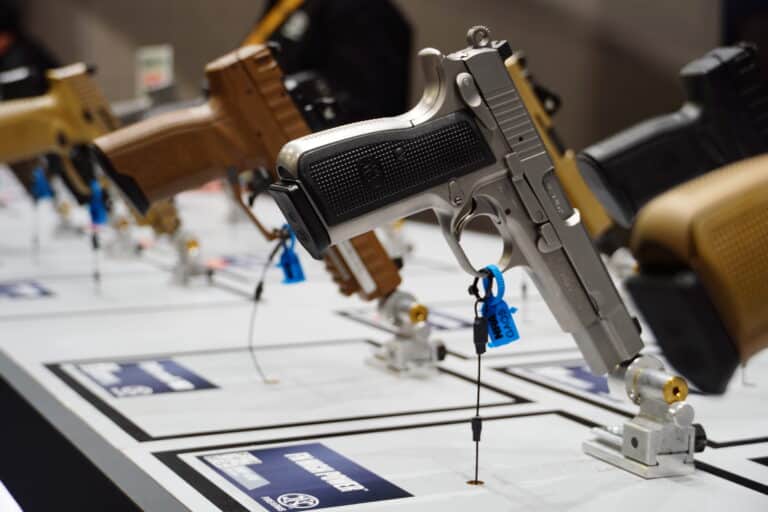
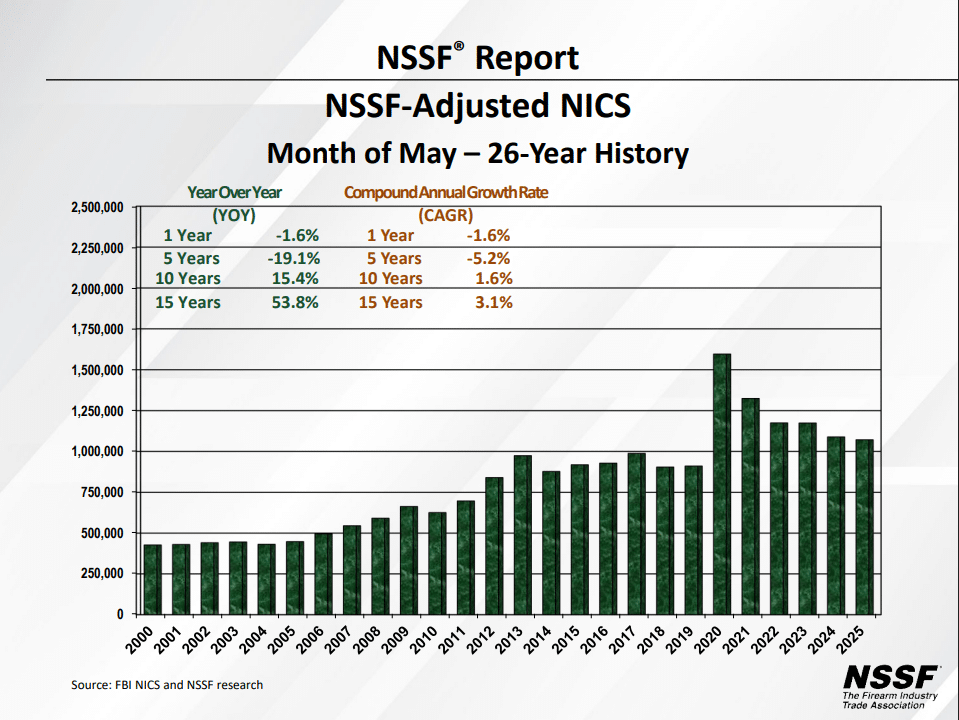

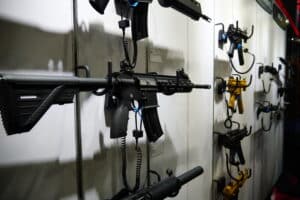
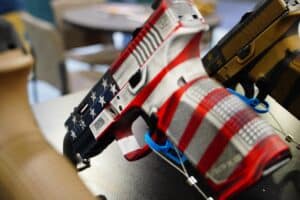
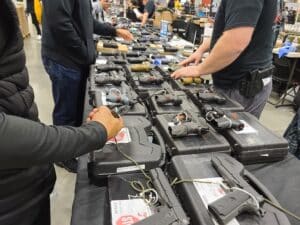

Only Members can view comments. Become a member today to join the conversation.